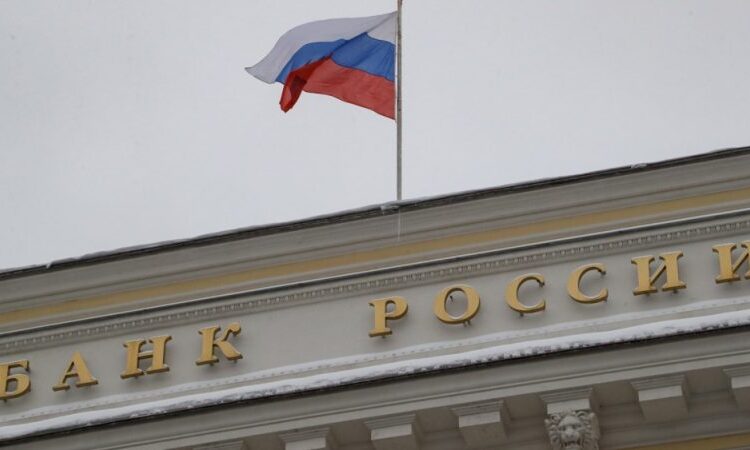
The European Union has moved toward using the profits from frozen Russian central bank assets to finance Ukraine’s reconstruction with the adoption of a new law on Monday (12 February).
The move, in line with steps taken by the G7, establishes a legislative route by which profits generated by confiscated Russian assets under specific circumstances could ultimately find their way toward Ukraine via the EU budget.
Both the EU and the G7 froze some €300 billion of Russian central bank assets following Russia’s invasion of Ukraine but have been hesitant on if and how these funds can be used.
Two-thirds of the funds are in the EU, with the majority held by Belgium’s clearing house Euroclear. So far, only taxes on the assets in Belgium have been earmarked to a dedicated fund for Ukraine handled by the Belgian government.
EU member states had given their political green light last month as part of the bloc’s show of support for Ukraine ahead of the second anniversary of Russia’s full-scale invasion in February.
The legislation passed on Monday means central securities depositaries (CSDs), such as Euroclear, will be prohibited from using net profits and must keep revenues from the Russian assets separate and stored until EU member states unanimously decide to set up a mechanism for them to be used.
The European Commission would then be expected to transfer the money to the EU budget and subsequently to Ukraine, though it is not specified when it would arrive there to be used.
The proposal only targets future profits and will not apply retrospectively.
It applies to institutions holding over €1 million of Russia’s Central Bank assets.
“Today’s decision, in line with the G7 position, clarifies (…) the legal status of the revenues generated by the CSDs in connection with holding of Russian immobilised assets and sets clear rules for the entities holding them,” said the Council of the EU.
“This decision paves the way for the Council to decide on a possible establishment of a financial contribution to the EU budget raised on these net profits to support Ukraine and its recovery and reconstruction at a later stage,” it added.
EU officials said this could generate an estimated €15-17 billion over four years that could be transferred to Ukraine.
Ukraine welcomes step, but asks for more
Ukrainian Foreign Minister Dmytro Kuleba welcomed the announcement, saying Kyiv would “encourage further steps to enable their practical use for Ukraine’s benefit. These steps must be ambitious and prompt.”
“Ukraine is ready to continue working with partners on reaching our ultimate goal: making Russian assets available to Ukraine. The aggressor must pay,” Kuleba said.
The EU immobilised around €200 billion of Russian assets shortly after Moscow launched its full-scale invasion of Ukraine in February 2022.
Beyond the profits from the frozen assets, the United States has also floated the idea of confiscating the assets outright, but EU officials so far view this as too risky legally.
The separate push led by the US and backed by the UK, Japan and Canada to confiscate all Russia’s assets, rather than just profits, is facing resistance from European G7 members, especially Germany, Italy and France.
EU officials and critical member states have voiced concern not only with the legality of such an unprecedented confiscation of sovereign assets but also due to European Central Bank concerns over the potential consequences for the euro currency.
Investors could pull out of euro assets out of concern their money might one day be seized too, they say.
Russia warns West
Russia warned the West on Tuesday (13 February) that it would react should the US and EU seize hundreds of billions worth of Russian assets.
“This is theft: It’s the appropriation of something that doesn’t belong to you,” Russian Foreign Ministry Spokeswoman Maria Zakharova told Sputnik radio, TASS reported.
Zakharova said the response from Moscow would be “extremely tough” as Russia felt it was essentially dealing with thieves.
“Considering that our country has qualified this as theft, the attitude will be towards thieves,” Zakharova said. “Not as political manipulators, not as overplayed technologists, but as thieves.”
Moscow has pledged Russia would retaliate by confiscating Western assets in Russia, which some reports put at $288 billion.
[Edited by Alice Taylor]







